How to recognize the signs of emotional exhaustion
Understanding the Critical Symptoms of Emotional Fatigue

Recognizing Emotional Exhaustion: A Vital Step Towards Well-being
Emotional exhaustion is a profound and often overlooked state that can significantly impair one’s mental, physical, and emotional health. It results from ongoing, unrelenting stressors and can manifest through a variety of symptoms, making early identification essential for effective intervention. This article explores the key signs and indicators of emotional exhaustion, helps differentiate it from other mental health conditions, and provides practical strategies for recognition and management.
Common Signs and Indicators of Emotional Exhaustion
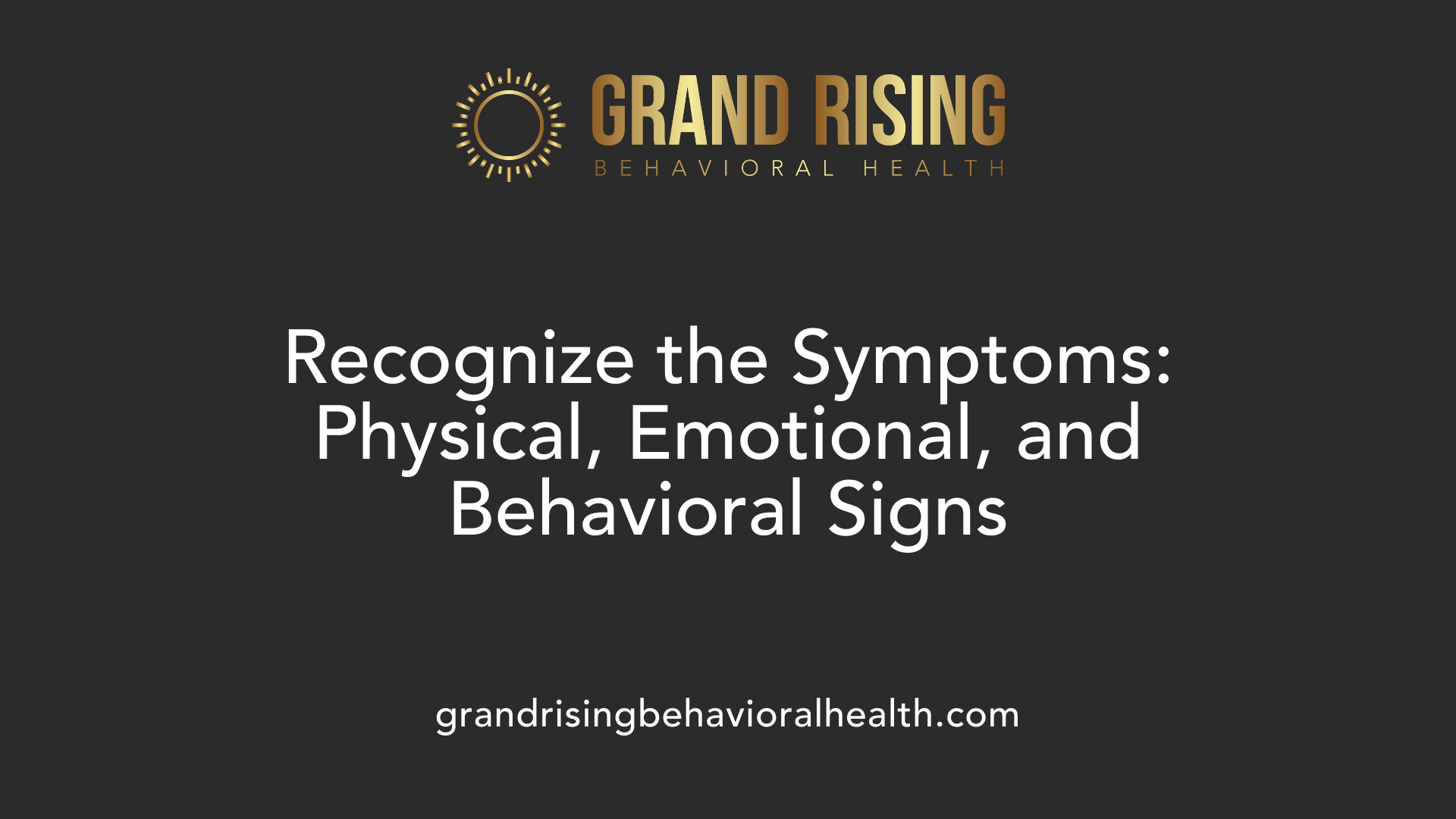 Emotional exhaustion often manifests through a variety of physical, emotional, and behavioral signs that indicate an individual is overwhelmed by stress. One of the most noticeable symptoms is fatigue, a persistent feeling of being physically drained that does not improve with rest. Alongside fatigue, irritability and a noticeable decrease in motivation to tackle daily tasks are common, making even simple responsibilities seem daunting.
Emotional exhaustion often manifests through a variety of physical, emotional, and behavioral signs that indicate an individual is overwhelmed by stress. One of the most noticeable symptoms is fatigue, a persistent feeling of being physically drained that does not improve with rest. Alongside fatigue, irritability and a noticeable decrease in motivation to tackle daily tasks are common, making even simple responsibilities seem daunting.
Emotionally, individuals might experience anxiety, apathy, or depression, accompanied by feelings of hopelessness or being trapped in their circumstances. Tearfulness, negative thinking, and emotional numbness can also point to emotional depletion. Physical signs such as frequent headaches, poor sleep patterns—including difficulty falling asleep, waking up during the night, or feeling tired despite adequate sleep—nausea, muscle tension, and changes in appetite are signals that the body is under stress.
In terms of performance, affected individuals often struggle with completing work responsibilities, fail to meet deadlines, and may withdraw socially or avoid interactions due to feeling overwhelmed. Slower work performance and increased absenteeism may reflect burnout and an inability to cope effectively.
Additional indicators include forgetfulness, decreased concentration, and a general sense of being overwhelmed. Recognizing these signs early can enable individuals to seek appropriate self-care strategies or professional help, which is crucial for recovery and preventing further health complications.
Early Warning Signs of Emotional and Mental Fatigue
What early warning signs indicate emotional or mental fatigue?
Recognizing the initial indicators of emotional and mental exhaustion can be crucial in preventing further health problems. Early signs often manifest in multiple aspects of a person's life.
Emotional signs include increased irritability and feelings of being overwhelmed. Many individuals notice a sense of emotional detachment, where they feel disconnected from others or from their surroundings. Persistent sadness, hopelessness, and a decline in motivation are also common.
Physical symptoms serve as physical signals that stress is taking a toll. These include fatigue, frequent headaches, sleep disturbances such as trouble falling asleep or waking up multiple times, and muscle tension or soreness.
On a behavioral level, signs to watch for are procrastination, withdrawal from social interactions, decreased productivity, and difficulty concentrating. These behaviors reflect the internal emotional and mental strain.
Cognitive indicators encompass persistent negative thinking, brain fog, forgetfulness, and a noticeable decline in focus and mental clarity.
By paying attention to these early signs, individuals can take proactive steps such as prioritizing rest, practicing stress management techniques like mindfulness or exercise, and consulting healthcare professionals if symptoms persist. Addressing these symptoms promptly helps reduce the risk of burnout and serious health issues, ensuring better overall well-being.
Differentiating Emotional Exhaustion from Other Conditions
Emotional exhaustion manifests as deep fatigue, emotional depletion, and physical symptoms such as headaches, muscle tension, and sleep disturbances. It often results from prolonged stressors, including work pressure, caregiving, or personal crises. To distinguish it from other mental health issues, consider the broader context and accompanying symptoms.
Depression involves pervasive feelings of sadness, hopelessness, low self-esteem, and a loss of interest in most activities. Unlike emotional exhaustion, depression can persist regardless of external stressors and often impacts multiple areas of life, including motivation and self-worth.
Burnout is a specific form of emotional exhaustion linked to work or caregiving roles. Its symptoms include decreased motivation, feelings of cynicism, and emotional drain, often accompanied by a sense of inefficacy or detachment from work tasks.
Stress-related symptoms primarily include physical signs like fatigue, irritability, sleep issues, and muscle tension. These signs are similar across conditions but are usually tied to identifiable stressors and may improve with stress management strategies.
Diagnosing these conditions involves an assessment of symptoms, their duration, and underlying causes. Emotional exhaustion is closely tied to ongoing stress, while depression involves mood symptoms that are less directly linked to external factors.
Seeking guidance from a mental health professional is essential for accurate diagnosis and tailored treatment. They can evaluate symptoms comprehensively and distinguish between these overlapping conditions.
Summary
| Condition | Main Characteristics | Distinguishing Features | Recommended Action |
|---|---|---|---|
| Emotional exhaustion | Fatigue, emotional drain, physical symptoms | Linked to ongoing stress and workload | Seek stress management and professional advice |
| Depression | Persistent sadness, hopelessness, loss of interest | Feelings of worthlessness and pervasive mood | Professional mental health assessment |
| Burnout | Reduced motivation, cynicism, emotional drain | Specific to work or caregiving contexts | Address work-life balance, seek support |
Strategies for Recognizing and Addressing Emotional Exhaustion
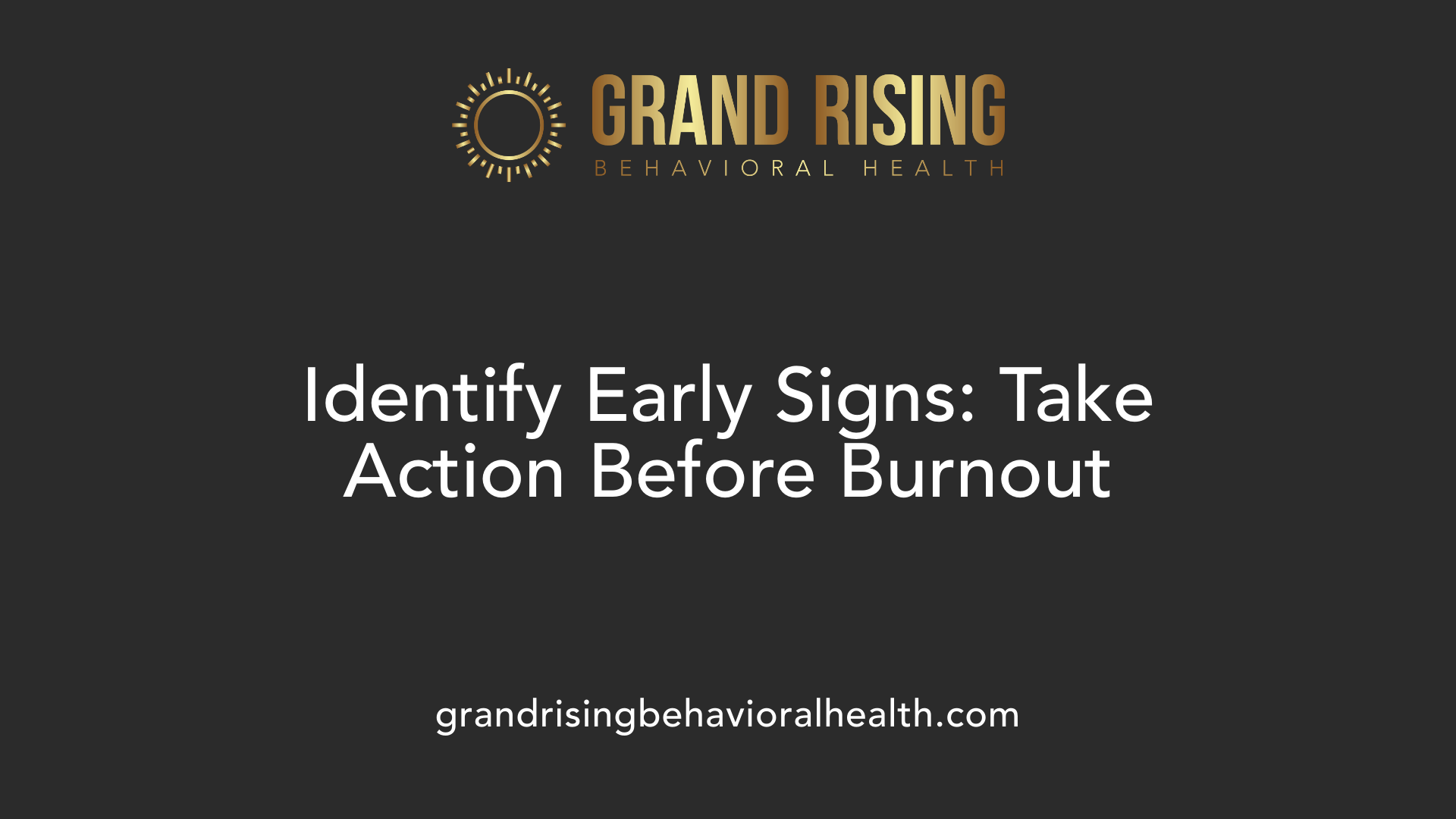
What are effective strategies to recognize and address emotional exhaustion?
Recognizing emotional exhaustion involves paying close attention to a combination of emotional, physical, and behavioral symptoms. Common signs include ongoing fatigue, irritability, difficulty concentrating, feelings of hopelessness, and a sense of emotional numbness or detachment. Physical symptoms such as headaches, muscle tension, sleep disturbances, and digestive issues can also indicate emotional drain.
Once these signs are identified, implementing specific strategies can help manage and reduce exhaustion. Prioritize adequate sleep and establish a consistent sleep routine to help your body and mind recover. Incorporate regular physical activity like walking, stretching, or yoga to boost mood and energy levels. Mindfulness practices such as meditation, breathing exercises, or deep relaxation techniques can ease stress and promote mental clarity.
Setting healthy boundaries is essential—learn to say no to non-essential commitments and avoid overloading your schedule. Connecting with supportive friends or family members for emotional support can provide relief and perspective. If symptoms persist or worsen, consulting a mental health professional is recommended. Therapy, such as cognitive behavioral therapy, or medications can offer tailored support.
Addressing underlying stressors—whether they stem from work, personal relationships, or caregiving responsibilities—is crucial. Making lifestyle modifications like engaging in enjoyable activities, maintaining a balanced diet, limiting alcohol intake, and ensuring time for rest help create a sustainable approach to recovery.
In summary, recognizing signs of emotional exhaustion early and taking proactive steps are vital. Combining lifestyle changes, stress-reduction techniques, and professional guidance fosters emotional resilience and promotes overall well-being.
The Impact of Burnout Awareness in Management and Recovery
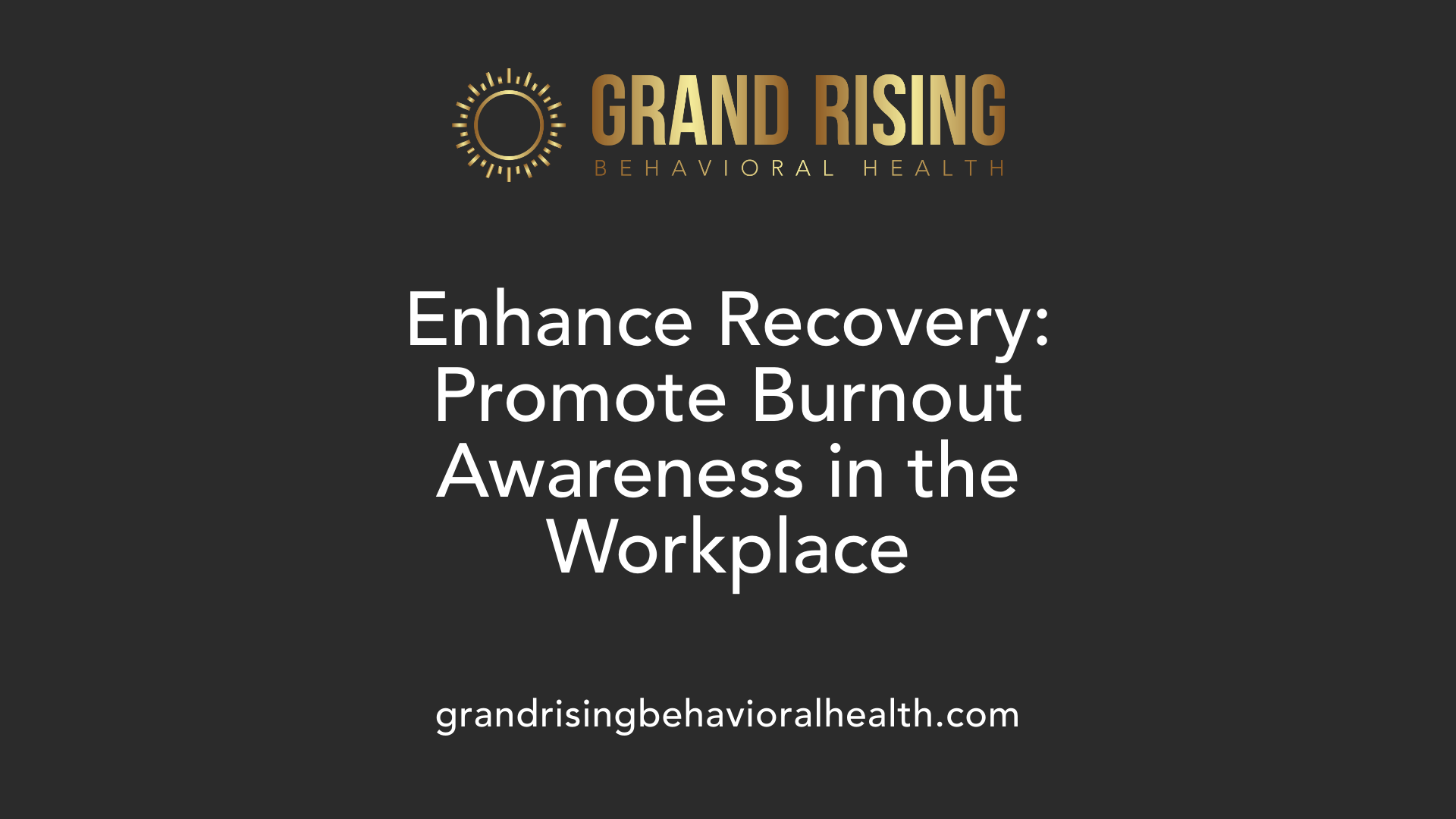
How can awareness of burnout symptoms help in managing emotional exhaustion?
Awareness of burnout symptoms plays a vital role in the early detection and effective management of emotional exhaustion. Recognizing signs such as chronic fatigue, irritability, withdrawal from social activities, and decreased motivation allows individuals and managers to identify issues before they escalate.
When people understand what to look for, they can take immediate action by seeking support, practicing stress-reduction techniques, or adjusting workloads. This proactive approach helps in preventing the progression from emotional exhaustion to more serious conditions like burnout or health problems.
In workplace settings, awareness fosters a culture where employees feel comfortable discussing their struggles. It encourages management to implement preventive measures such as workload balancing, promoting healthy work habits, and providing access to mental health resources.
Being informed about the stages of burnout and its symptoms also urges individuals to set healthy boundaries and prioritize self-care routines. This not only enhances recovery prospects but also preserves overall well-being and productivity.
In summary, increased burnout symptom awareness is crucial in managing emotional exhaustion effectively. It enables early intervention, fosters supportive environments, and promotes healthier lifestyles, contributing to long-term mental and physical wellness.
Causes and Effects of Emotional Exhaustion
What are common causes and effects associated with emotional exhaustion?
Emotional exhaustion often results from ongoing and intense stressors that overtax an individual’s ability to cope. Common causes include prolonged work pressure, especially in demanding professions like healthcare, education, or social services. High-responsibility roles, long hours, and lack of support intensify this stress. Personal challenges such as grief, divorce, financial struggles, chronic illness, and caregiving responsibilities also contribute significantly.
Additional triggers involve lifestyle factors like poor self-care, inadequate sleep, and unhealthy coping habits such as substance abuse. When stress persists over time without relief, emotional exhaustion sets in, manifesting through various symptoms.
The effects are broad and impactful. Physically, individuals may experience fatigue, frequent headaches, digestive issues, and sleep disturbances. Emotionally, feelings of hopelessness, irritability, depression, and cynicism emerge, often lowering motivation and engagement.
Performance at work can decline, with increased errors, missed deadlines, and withdrawal from social interactions. Over time, untreated emotional exhaustion can lead to serious health problems such as high blood pressure, weakened immune response, and even depression.
Mitigation involves strategies like lifestyle adjustments, stress reduction techniques, therapy, organizational support, and fostering healthy habits. Recognizing these causes early can prevent the escalation of symptoms and lasting health impacts.
Recognizing When Support Is Needed: A Guide to Help-Seeking Behaviors
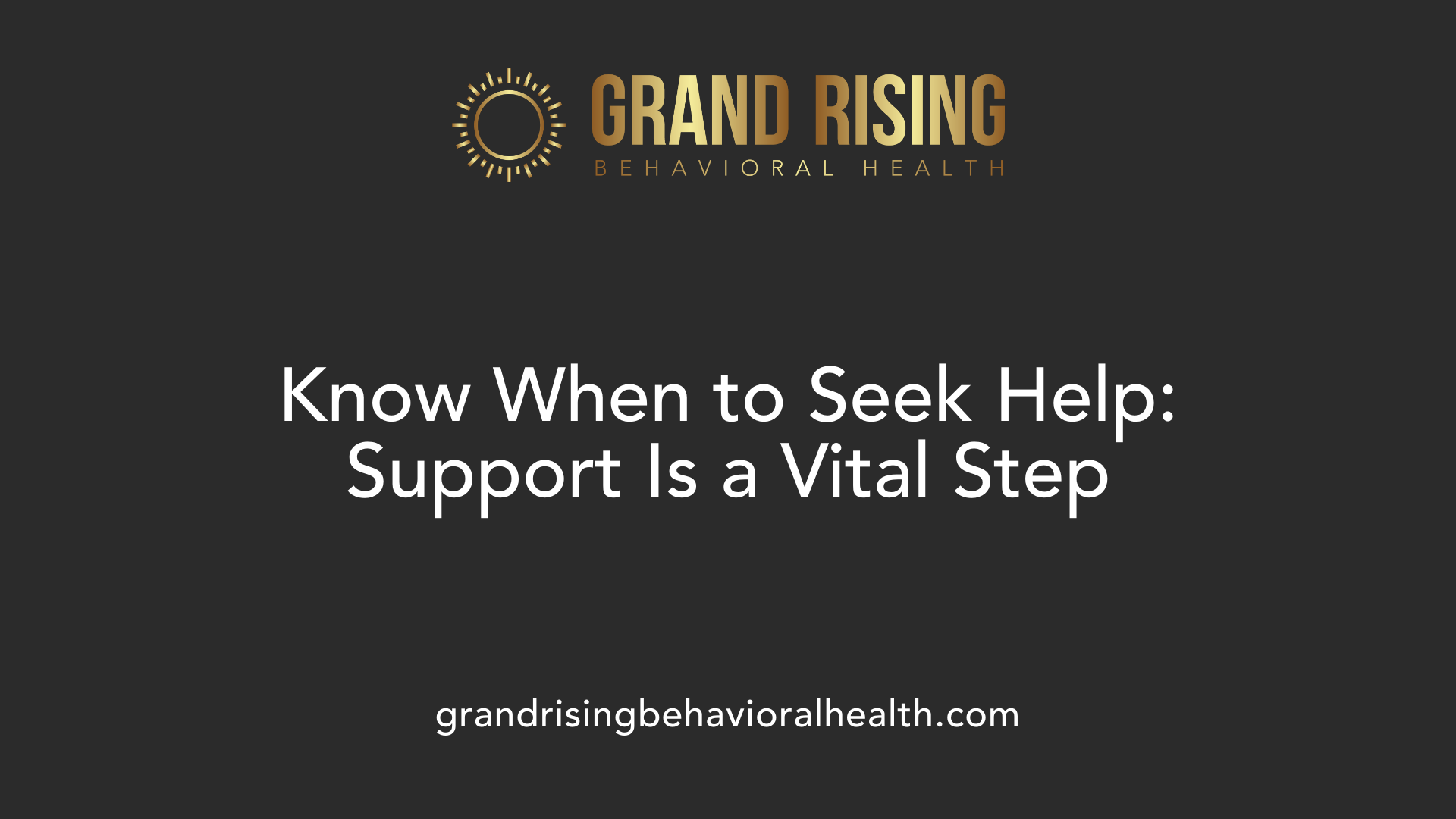
What are some signs indicating that I should seek help or support for emotional exhaustion?
Recognizing when it's time to seek professional support is crucial in managing emotional exhaustion. Persistent physical symptoms such as ongoing fatigue, frequent headaches, sleep disturbances like insomnia or oversleeping, and muscle tension are clear indicators that your body may be overwhelmed.
Emotionally, feelings of hopelessness, irritability, and anxiety that linger for weeks can signal deep exhaustion. You might also notice a significant drop in motivation, trouble concentrating, or a persistent sense of being overwhelmed despite trying to manage stress through self-care.
Behavioral changes are equally important warning signs. These include withdrawing from friends and social activities, declining work performance, and increased absences from responsibilities. Engaging in unhealthy coping mechanisms such as excessive alcohol consumption or substance misuse also suggests a need for help.
If these symptoms persist and start to interfere with your daily life—impacting relationships, work, or overall well-being—it is advisable to consult a mental health professional. Early intervention can prevent further deterioration, address the root causes of stress, and develop a tailored management plan to facilitate recovery.
Seeking support is a proactive step that can help restore balance, improve emotional health, and prevent long-term health problems associated with untreated emotional exhaustion. Remember, professional help is available and effective in guiding you through this challenging time.
Holistic Management and Lifestyle Changes
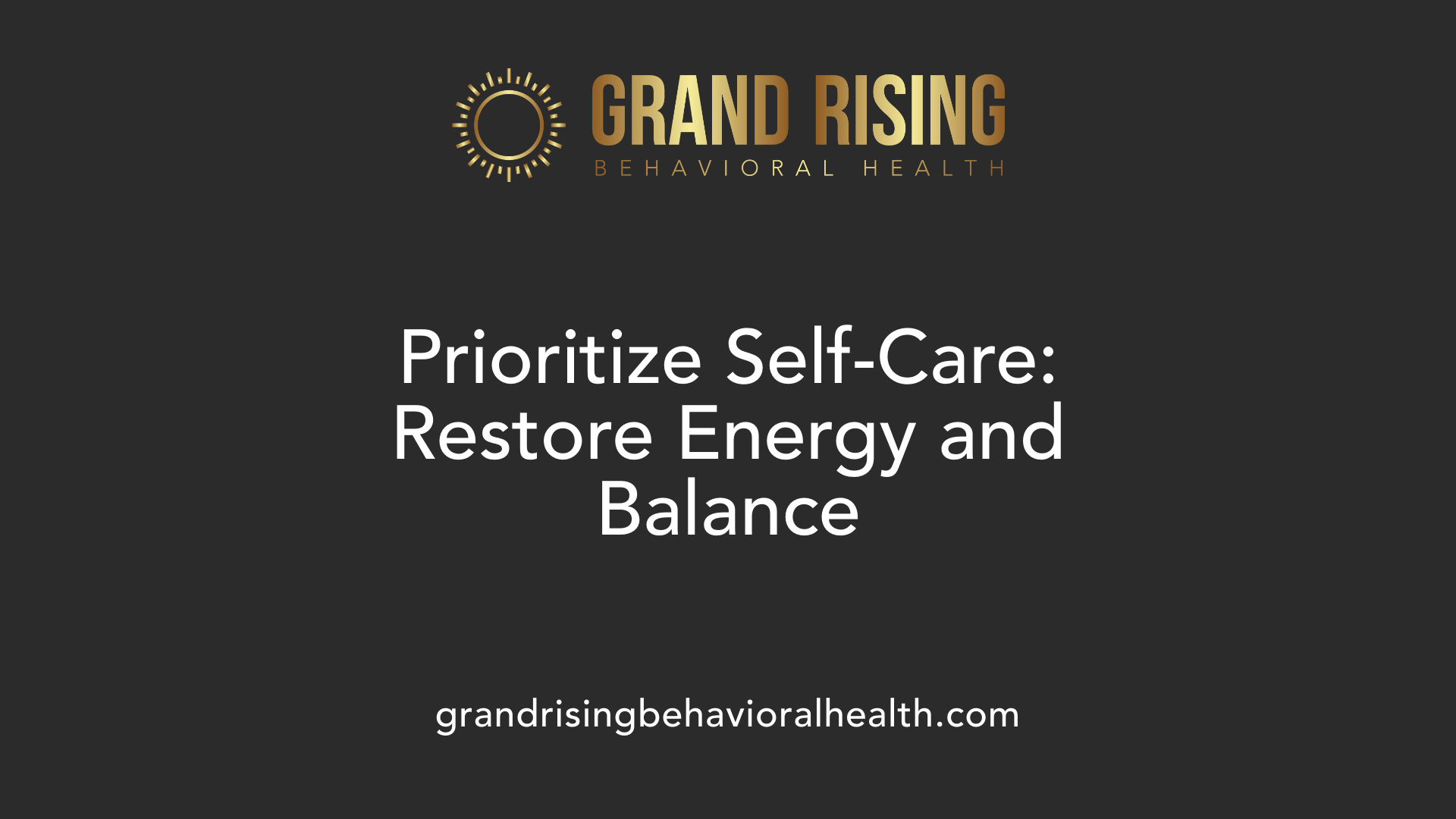
How can self-care routines help manage emotional exhaustion?
Implementing self-care routines is essential for recovery from emotional exhaustion. Engaging in activities like regular exercise, maintaining a balanced diet, ensuring adequate sleep, and practicing mindfulness can reinforce physical and mental resilience. These routines help replenish energy, reduce stress levels, and improve overall mood.
Why is boundary setting important?
Setting clear boundaries at work and in personal life helps prevent excessive stress accumulation. Learning to say no to non-essential commitments and limiting exposure to stressors enables individuals to protect their emotional energy. Boundaries foster a healthier work-life balance and reduce feelings of being overwhelmed.
How does mental health support contribute?
Seeking support from mental health professionals such as therapists or counselors provides a safe space to explore feelings and develop coping strategies. Therapy can help challenge negative thought patterns, address underlying issues, and teach stress management techniques like relaxation exercises. Professional help is crucial when symptoms persist or worsen.
What are some healthy habits to incorporate?
Adopting healthy habits, such as regular physical activity, mindful breathing exercises, engaging in hobbies, and maintaining social connections, can significantly reduce emotional exhaustion. Limiting alcohol and caffeine intake, practicing gratitude, and setting realistic goals enhance emotional well-being and resilience.
| Strategy | Benefit | Additional Details |
|---|---|---|
| Self-care routines | Replenishes energy | Includes sleep, diet, exercise |
| Boundary setting | Reduces stress | Protects personal/emotional space |
| Mental health support | Provides professional guidance | Therapy, support groups |
| Healthy habits | Promotes overall balance | Contains exercise, hobbies, social activities |
Focusing on these comprehensive lifestyle changes offers a pathway toward recovery, helping restore emotional strength and prevent future exhaustion.
Taking Action to Protect Your Mental and Physical Health
Recognizing the signs of emotional exhaustion early and taking proactive steps can significantly improve your quality of life. Through lifestyle adjustments, stress management, and seeking professional support when necessary, individuals can recover and rebuild emotional resilience. Prioritizing your well-being not only alleviates current symptoms but also fortifies you against future stressors, fostering a healthier, more balanced life.
References
- What is emotional exhaustion? - Mayo Clinic Health System
- Emotional Exhaustion: Symptoms, Causes, Treatments, and More
- Mayo Clinic Q and A: Emotional exhaustion: When your feelings feel ...
- Signs You're Mentally Exhausted - WebMD
- Signs you might be experiencing a burnout and how to regain ...
- Emotional Exhaustion: Signs, Causes, Recovery Tips - Talkspace
- Five Signs You're Emotionally Exhausted (And What to Do About It)
- Emotional exhaustion: Causes, symptoms, and recovery
More Resources
A team ready to start your journey.
Get in touch — today.
We are a safe space – a haven for exceptional individuals to receive discreet, personalized, in-person treatment and care.
.avif)










